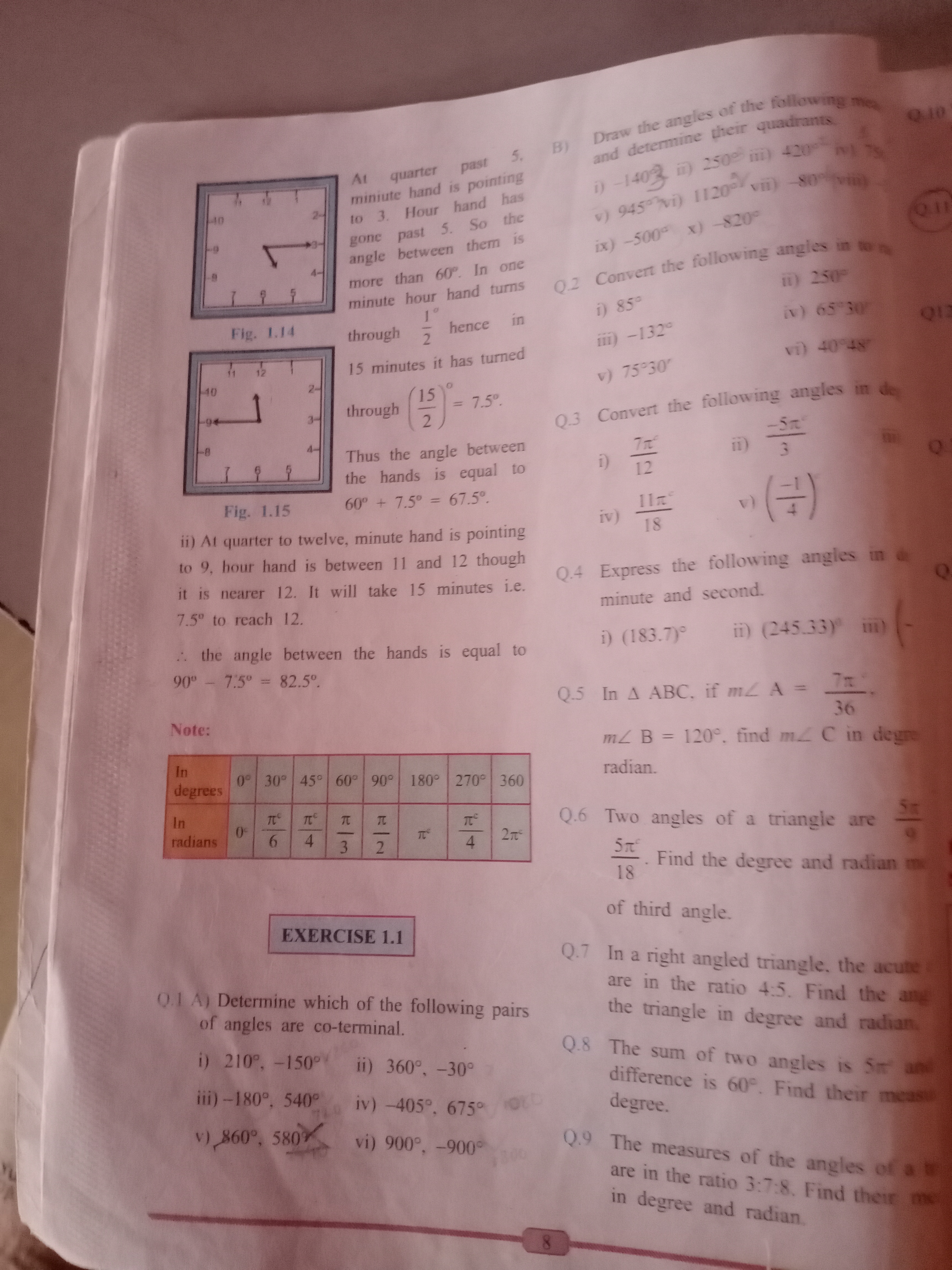Determine which of the following pairs of angles are co-terminal. i) 210°, -150° ii) 360°, -30° iii) -180°, 540° iv) -405°, 675° vi) 860°, 580° vi) 900°, -900°

Understand the Problem
The question is asking to determine which pairs of angles are co-terminal. Co-terminal angles are angles that share the same terminal side when drawn in standard position. This means that their difference is a multiple of 360 degrees.
Answer
The pairs of angles that are co-terminal are: \( (210°, -150°), (-180°, 540°), (-405°, 675°), (900°, -900°) \)
Answer for screen readers
The pairs of angles that are co-terminal are:
- ( 210° ) and ( -150° )
- ( -180° ) and ( 540° )
- ( -405° ) and ( 675° )
- ( 900° ) and ( -900° )
Steps to Solve
- Identify Co-tangent Condition
To determine if two angles are co-terminal, check if their difference is a multiple of 360 degrees.
- Calculate Differences
For each pair:
- For 210° and -150°: $$ 210 - (-150) = 210 + 150 = 360 $$
- For 360° and -30°: $$ 360 - (-30) = 360 + 30 = 390 $$
- For -180° and 540°: $$ -180 - 540 = -720 $$
- For -405° and 675°: $$ -405 - 675 = -1080 $$
- For 860° and 580°: $$ 860 - 580 = 280 $$
- For 900° and -900°: $$ 900 - (-900) = 900 + 900 = 1800 $$
- Check Multiples of 360
Now, check if each computed difference is a multiple of 360:
- For $360$: Yes ($360 \div 360 = 1$)
- For $390$: No ($390 \div 360 \approx 1.083$)
- For $-720$: Yes ($-720 \div 360 = -2$)
- For $-1080$: Yes ($-1080 \div 360 = -3$)
- For $280$: No ($280 \div 360 \approx 0.778$)
- For $1800$: Yes ($1800 \div 360 = 5$)
Thus, the pairs that are co-terminal are:
- ( (210°, -150°) )
- ( (-180°, 540°) )
- ( (-405°, 675°) )
- ( (900°, -900°) )
The pairs of angles that are co-terminal are:
- ( 210° ) and ( -150° )
- ( -180° ) and ( 540° )
- ( -405° ) and ( 675° )
- ( 900° ) and ( -900° )
More Information
Co-terminal angles can be visualized as angles that share the same position on the unit circle, even if they have different measures. Every full rotation (360°) leads to a co-terminal angle.
Tips
- Overlooking negative angles: Remember that negative angles also represent rotation in the opposite direction, which can lead to co-terminal pairs.
- Miscalculating differences: Ensure accurate calculations of the angle differences to verify co-terminal conditions.
AI-generated content may contain errors. Please verify critical information